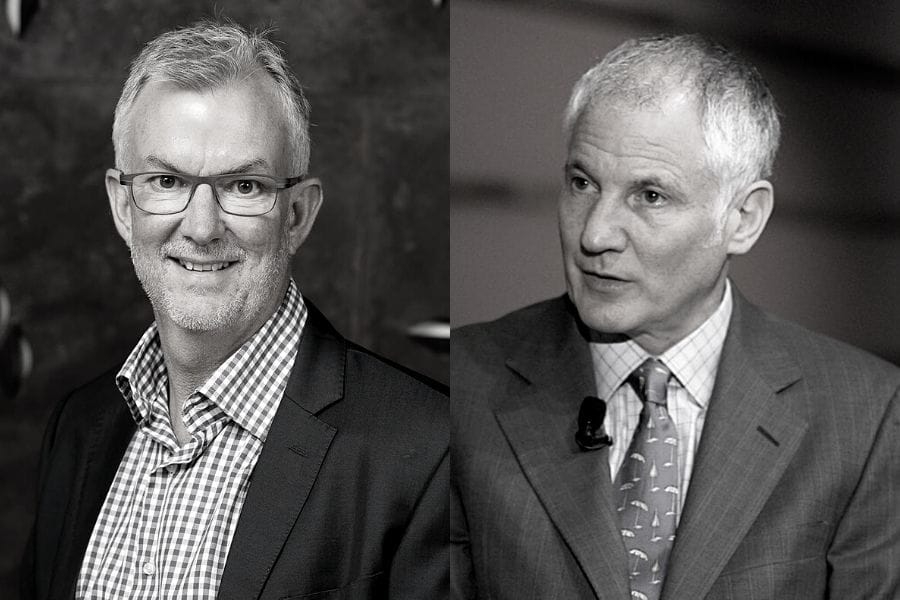Greenwashing is pervasive and it’s no mystery why, according to Professor Stephen Kotkin, who says governments continue to sign on to mandates they cannot meet, and investors pledge commitments they cannot redeem, creating a lucrative industry in greenwashing.
At the same time, private automobile companies are far advanced in shifting to exclusive production of electric cars in the near term, consumers are already snapping up a variety of meatless “meat” offerings, and fossil fuel companies are having trouble investing in fossil fuels.
Even as the government-led mandate-and-pledge approach promotes as much of a political backlash as effective action, in other words, the private sector is already altering the economy fundamentally. Kotkin contends that if governments in the largest economies focused on just two areas – carbon pricing and reinventing the grid – the greenwashing sector might crater as fast as it arose.
“Governments, ESG-advocates, and institutional investors are not intentionally promoting greenwashing. But when companies feel compelled to make pledges they cannot keep, even if they wanted to, they hire the consultants to demonstrate ‘compliance’ and get that necessary seal of approval for investors. The intention is get to a better place, but the consequences are unintended and perverse.”
Kotkin, Professor in History and International Affairs and director of the Princeton Institute for International and Regional Studies, funds climate research, including international dimensions of the much-applauded Net Zero America team.
He cautions against a politics of sustainability that is itself unsustainable. The climate change claims need to be humbler and strictly evidence-based: the scientific models in this complex area have been poor at prediction, the sine qua non of models. Exhortation needs to give way: the infrastructure now in place, produced by more than a century of a fossil-fuel powered global economy, will not be transformed by ever-greater alarmism and spiralling pledges. Do we really want more and more solar panels produced by brand-new coal-fired power plants?
“The big multinationals in the oil and gas industry are terrible at alternative energy but they have nowhere else to go except to commit to clean energy. They can’t not make the pledge,” he says. In place of pledges, and to eradicate greenwashing, the private sector needs to be allowed to lead, which it is already doing.
“Auto manufacturers are phasing out non-electric cars but there are no mandates to do that, they are doing it because of market signals. They are convinced consumers want electric cars,” he says.
Similarly, consumer demand for plant-based meat is forcing changes in food production, grocery shops, and restaurants. “Like farm to table, plant-based meat is now a booming industry because producers are responding to demand. More companies in the food business will pivot from cows and methane. They have to because the market is pivoting.”
Kotkin, also a senior fellow at the Hoover Institution at Stanford, says investors will have a better strategy for sustainability if they mesh the two ideas: that greenwashing is coming from the zero mandates, and the real change is coming from consumers and responsive producers. “We need a more limited view of what we are demanding from government and a more markets’ incentive view of change,” he emphasizes.
Right now, he notes, not enough product is being created for asset owners to achieve their aims, instead what is being provided is consultancy to navigate political waters. The contortions for hard-pressed institutions to appear to be doing their part is now a thriving business.
“We don’t have the carbon pricing and the smart grid so we don’t have the product,” he says. “If we skipped the high-profile international gatherings, which signal commitments the participants could not possibly impose in the messy real world, and just got a carbon price that was used by the US, EU, China, and a few other key countries there would be a gold rush.”
New investment needed
Kotkin says that the climate challenge requires new investment on a staggering scale and the market needs to back “killer companies,” from alternative energy to sustainable agriculture.
“We need companies that are as good at alternative energy as ExxonMobil is at fossil fuels,” he says. Subsidies rarely create killer companies.
One reason for lack of innovation, according to Kotkin who is a specialist in Communist regimes, is that China undercut the global alternative energy industry with massive state subsidies, enabling Chinese firms to grab market share by selling below cost.
“The solar industry in the US was undermined by China, but the China solar industry is inefficient. Because of subsidies it was able to destroy other companies that were more incentivized to innovate,” he says.
Energy transition will remain a long-term prospect, no matter how urgent, though it can accelerate based on incentives, and savvy investors.
“You have to attack the problem where you can trigger a systems cascade. If charging stations are built then it would vastly accelerate the transition to electric cars. At the moment electric cars remain a luxury even though demand-wise there is a latent mass market,” he says.
Kotkin also observes that measurement and metrics are a shambles. “Right now there is no money in certifying actual compliance. All the money is in pretend compliance, the incentives are upside down. We need metrics and measurement that are realistic, that companies can meet and a system to hold them in compliance. We need the right incentives for the big accounting firms, too.”
Professor Stephen Kotkin will speak at the Sustainability in Practice digital conference on September 8-9. The event is complimentary to asset owners.
One of the authors of Net Zero America, senior research scientist, Chris Greig from Princeton’s Adlinger Center is also on the program which will focus on how to achieve net zero.




